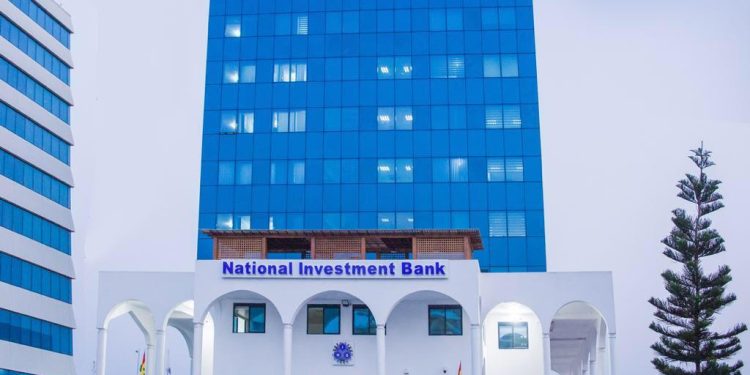Gov’t Injects GH¢2.45bn to Recapitalise NIB; Bank Posts Profit for First Time in Nearly a Decade
The government has successfully completed a far-reaching GH¢2.45 billion recapitalisation of the National Investment Bank (NIB), marking a decisive turnaround for one of Ghana’s last remaining indigenous development finance institutions.
Announcing the development during the 2025 Mid-Year Budget Review in Parliament, Minister for Finance, Dr Cassiel Ato Forson, described the recapitalisation as both “ambitious and credible,” noting that it has already begun to yield tangible results — with the bank posting a profit for the first time in almost 10 years.
According to Dr Forson, the recapitalisation initiative aimed to rescue the bank from collapse, preserve depositor funds, and restore public confidence in NIB.
Multi-Pronged Recapitalisation Framework
The recapitalisation package included:
A direct government cash injection of GH¢450 million;
The issuance of GH¢1.5 billion in marketable bonds; and
The transfer of GH¢500 million worth of Government of Ghana shares in Nestlé Ghana Ltd to NIB’s balance sheet.
These measures collectively lifted the bank’s Capital Adequacy Ratio (CAR) from a dire -53.13% at end-2024 to 23% by May 2025. NIB’s paid-up capital now stands at GH¢3.4 billion, giving it the liquidity and resilience needed to withstand market shocks and pursue growth.
The recapitalisation effort has preserved GH¢6.4 billion in depositor funds and secured more than 900 jobs at the institution.
“This is not a bailout. It is a national investment in an institution that must work for the Ghanaian people,” Dr Forson stated.
Forward-Looking Restructuring Plan
Beyond the capital injection, government has developed a Forward-Looking Overarching Restructuring Plan aimed at positioning NIB for long-term profitability and strategic relevance.
The plan, coordinated by the Ministry of Finance in collaboration with NIB management and financial sector regulators, focuses on:
Enhancing board independence and eliminating insider dominance;
Strengthening corporate governance and risk management;
Improving transparency, accountability and operational efficiency.
A key objective under the plan is to prepare NIB for listing on the Ghana Stock Exchange (GSE), thereby deepening public ownership and market discipline.
Return to Profitability and Transparency
As a result of the reforms, NIB reported a GH¢74.38 million profit before tax for the first half of 2025 — a strong reversal from the GH¢44.79 million loss recorded in the same period last year.
This marks the first time NIB has published financial results since 2016, a development that management says reflects renewed confidence, operational stability, and transparency.
Other financial highlights include:
Total assets of GH¢8.55 billion, up from GH¢5.71 billion in June 2024;
Customer deposits of GH¢7.3 billion, reflecting improved confidence;
Net operating income of GH¢326.28 million in H1 2025;
Capital Adequacy Ratio further improving to 41.34% — well above regulatory requirements;
An equity position turnaround from a GH¢1.01 billion deficit in mid-2024 to a GH¢892.27 million surplus currently.
According to NIB management, the bank’s resurgence has been driven by strict cost discipline, enhanced operational efficiency, and a focused capital recovery strategy.
Model for Public Sector Bank Reform
NIB’s recovery could serve as a model for the restructuring of state-owned financial institutions across Africa. Once bogged down by weak governance and chronic undercapitalisation, the bank is now on a path of sustainable growth and reform.
Dr Forson noted that while the recapitalisation laid the foundation, sustaining the gains will require continued vigilance and institutional discipline.
“We have done the heavy lifting. Now we must ensure that the systems we’ve put in place continue to work — to protect the bank, its workers, depositors, and the Ghanaian taxpayer,” he told Parliament.








